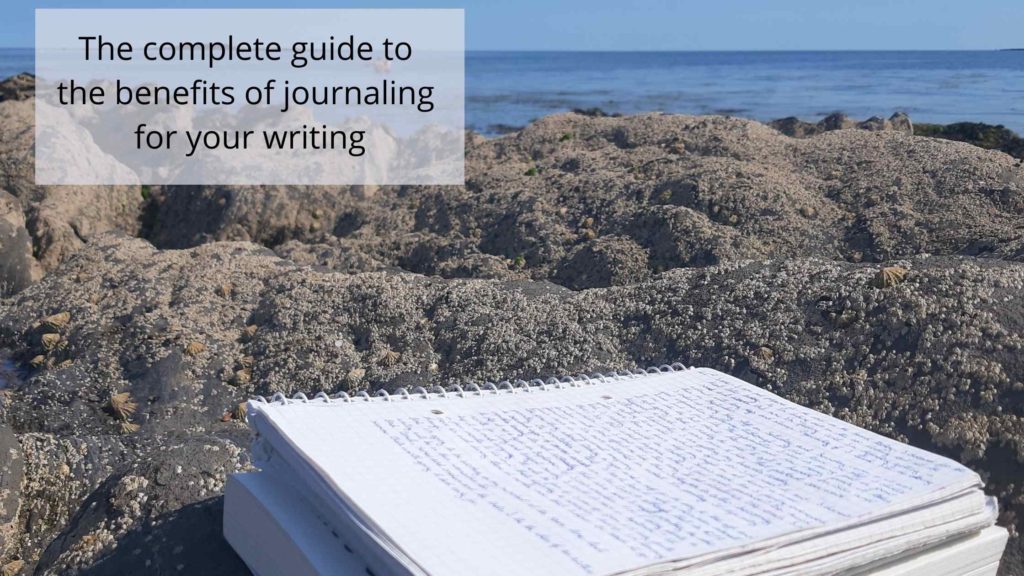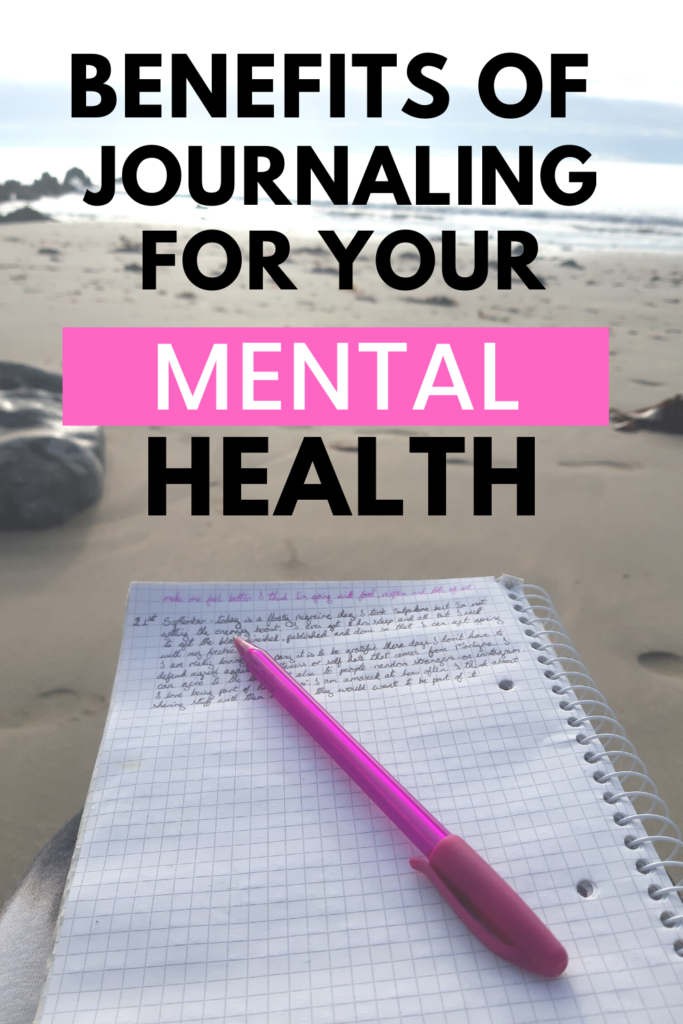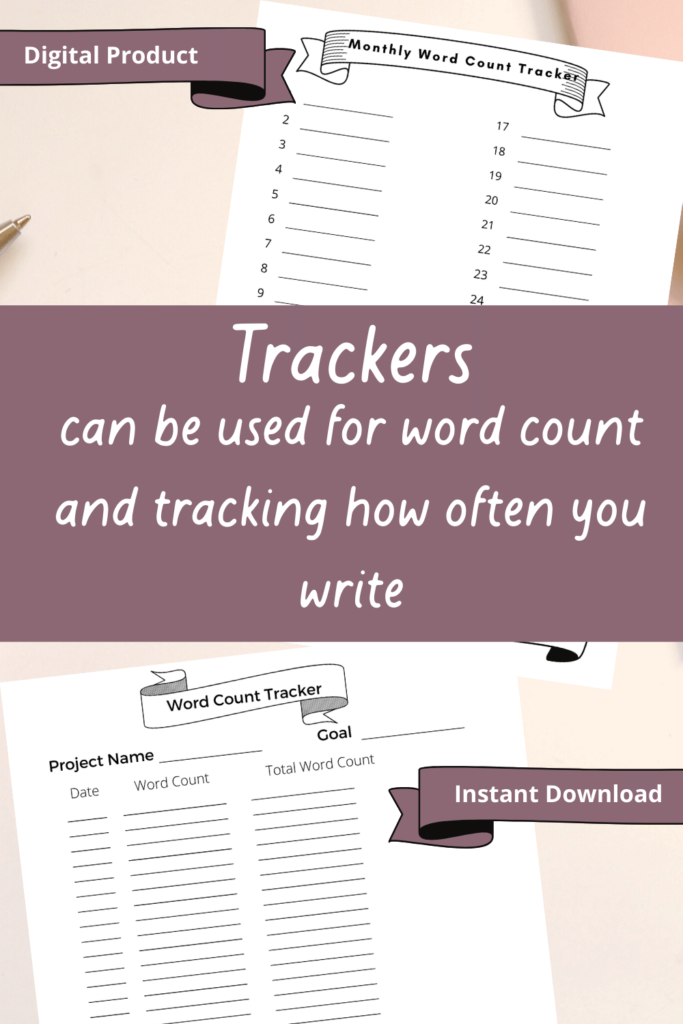The complete guide to the benefits of journaling for writers

I talk a lot about journaling and how beneficial journaling is for writers. But I have been keeping a diary in various forms since I was young so journaling is not hard for me. But when you are interested in the idea of journaling to help your writing there are so many options and methods of journaling for writers that it can be possible to be paralysed by choice.
How can journaling help your writing?
Writing is a skill. So the more we practise the better we will be. I use journaling to help me figure out what my blocks are first of all. Sometimes, It has happened that the reason I have struggled to write in the past is that I am exhausted. But, it is not until I start writing about it in my journal that I realise exactly how little sleep I have had and that I do not physically have the energy to create or focus.
Have you ever been stuck for ideas to write about? Have you struggled to find momentum with your current writing project? Has your head been full of thoughts and worries about the current situation in the world? Have you found it difficult to think about anything beyond your own personal struggles? All of these can make it difficult to write and this is where journaling can help your writing.
What is journaling?
First of all, let’s talk about what journaling is. It can feel like one of those new buzzwords that get used a lot. But there is documented evidence of the ancient Egyptians journaling. Journaling has been around for a long time.
Journaling is the act of writing down our thoughts, feelings and experiences. It is similar to writing in a diary. Although, you don’t have to just write out a list of events that happened during your day. You can choose to focus on one aspect or event.
What are the benefits of journaling?
There are many benefits of journaling. If you have used a journal before you may have experienced some of these. My favourite benefit of journaling is creating space in my brain by writing down all of my thoughts. This technique of brain dumping can help us to stop overthinking.
I recently started to include an extra step to challenge negative thoughts. I write down the thought but then I also write down anything that contradicts the negative thought. As humans, we are always inclined to believe negative thoughts
a lot easier than positive thoughts. So, we often have to create a strong argument about why not all of our negative thoughts are true.
Doing this externally is a lot more effective than trying to keep it all in our brains. Speaking or writing the thoughts involves our other senses and interrupts the constant spiralling of thinking that our brains do.
Journaling can help us to sort through our feelings and thoughts. We can use journaling to shift our viewpoint.
Writing it down lets you know how you are thinking or feeling and you can then decide to change how you are feeling. For example, if you are feeling angry about something beyond your control there are no benefits to continuing to stay angry. You can use journaling to write the way you want to feel. If you want to feel happier then you write positively. This method retrains your brain. It shows you what words you would use to describe your happiness and your brain will find it easier to know how to think the next time.
It can take practice and is a technique that therapists sometimes use to help people change their thinking.
One of the benefits of journaling over a long period of time is being able to notice patterns and see how far you have come. If you are regularly feeling a certain way and you want to change, journaling can help you see if there are any external circumstances that bring up those feelings.
It can be hard to see how much we improve when we are living day to day. But journaling is a great way to look back and compare how you are now with how you used to be.

Journaling also benefits our mental health
I came across this really interesting study when I was researching for this blog post. To summarise, participants were asked to write for 15 – 20 minutes over 3 – 5 sessions, often on consecutive days. It is described as expressive writing where they were asked to choose a significant emotional event and write their deepest thoughts and feelings about what was either a traumatic event or an emotional issue that has affected them and their life.
The short term effects of this expressive writing were an increased negative mood, distress and matching physical symptoms. But the longer-term benefits were significant:
Fewer stress-related visits to the doctor.
Reduced blood pressure.
Improved mood.
Feeling of greater psychological well being.
Fewer post-traumatic intrusion and avoidance symptoms.
Improved working memory.
Participating students had a higher grade point average.
The reason for this is that writing about the experience requires us to structure a narrative. This narrative tends to be logical, even when we also include the emotions caused by it. This process requires increased cognitive processing and this extra thinking is what helps us. This is also why one of the benefits is improved working memory and a higher grade point average for the students that took part.
Many of the benefits I have described are difficult to measure. They can also vary from person to person. So, it is great to be able to read about this study that used a scientific method to measure the results.
Physical benefits of journaling
The majority of the benefits so far have all been psychological. But because the brain controls our body and all of its functions when we spend time working on our thought processes our physical body also benefits. These benefits are less tangible and harder to measure but they are still nice to have. People have reported a boost in immunity levels and improved memory.
What are the benefits of journaling for creativity?
At the Wild Wordsmith, their favourite part of journaling is the safe space it creates. The total freedom of not having rules or anybody to ask permission from is great for unleashing your creativity.
They really like the benefits of getting all your surface thoughts onto the page and out of your brain. This space then allows you to focus on your writing without having to keep remembering all of the things that have to be done in the morning (which is what my brain will always default to).
What are the additional benefits of journaling for writers?
For writers, journaling can help us get used to communicating with words. Journaling also helps us to get used to what our words and sentences look like.
As a writer, it is always beneficial to work with words as often as possible. Even if it is not part of a specific writing project.
J.S. Wong suggests that the free form nature of journaling illustrates the importance of trusting the process of writing rather than the outcome.
Writing about writer’s block or any frustration can help us to see how our personal struggles can affect our ability to write and create. I have often used the prompt ‘Why am I finding it hard to write today?’ to figure out a way to move past my blocks.
Stream of consciousness writing is a great technique that is another way journaling can help your writing. When you write your thoughts as they appear in your head they do not need to be edited or restructured. This can help to switch off the constant inner editor and help you focus on writing as a process instead of a product for other people to consume.
It is easier to be true to yourself and write about how you really feel when you know no one is going to read it. Then, you can take your experience of writing your truth and use it in your fiction.
Journaling how we really feel and understanding more about our own behaviour can help us to write believable and authentic characters.
So, now that you know the benefits how do you start journaling?
There are lots of different ways to journal so the short answer is whatever way you like.
The consistency of the routine matters more than the length of each entry or how you journal.
It is possible to keep a digital version of a journal. It might work really well for you if you find it hard to make time to sit down with a notebook and pen. Our phones are always close to us and the notes app could be the perfect place for you to journal.
But there are benefits to writing in a journal by hand. When we write using a pen or pencil our hands move slower than our brain can think. So, our brains have to slow down to match our writing speed. This gives us more time to consider which words we want to use. We are also focusing on one part of a thought at a time.
Make it fun by choosing notebooks and pens that you will actually use. You might like a notebook because of the cute picture on the front or because it is a classic and you know you will always be able another one when it is full. The details don’t matter. The most important factor is always that you will use it.
The hard, or easiest, part about journaling is that there is no definite right or wrong way to journal. You can use prompts or not. You can freestyle or not.
There are no requirements to use punctuation or pay attention to grammar rules. There are no external requirements. This is what makes journaling difficult. From the first time we pick up a pencil we are told what results to expect and we are corrected until we achieve those results.
But, this freedom can also be a great space to take risks and try different things.
Using lists can be less intimidating than writing paragraphs. You can choose the topics such as what I’m grateful for today or things that are currently annoying me.
How will I know if I am journaling correctly?
The key to this question is what result are you looking for? If you are just looking to write more often then you just focus on the number of times you have been writing. You can create your own tracker or buy a tracker. Here are the ones that I use.

They are available to buy from my Etsy shop.
If you are journaling because you want to feel more confident in your writing then you need to compare your first few entries with your latest entries.
Going out and about with your journal
When your journal is basically a notebook it can be easy enough to bring it with you.
If you like being around people you might enjoy journaling in a cafe or a busy park.
I prefer being on my own when I journal so I found somewhere that works for me. When the weather is good I love journaling at the beach. My local beach has enough rocks and quiet spots that I can still find a relatively isolated patch. Sometimes when the weather is really bad I sit in my car looking out at the sea and write in my car.
If you get used to bringing your journal with you it will make it easier to use. Even if it is only from the bedroom to the kitchen.
Difficulties of journaling
If you are excited to try journaling then that’s great. So far I have been focusing on the positives. But there are difficulties to everything in life no matter how good they sound.
One of the difficulties that I have personally experienced is when I am interrupted in the middle of an angry rant. I end up carrying that anger around for longer. When I know that journaling helps me and I didn’t get to release that anger, I can also get frustrated.
So, while the benefits of journaling include improved mood, sometimes there can be negative feelings. That is ok. We are humans and we experience a wide variety of emotions.
If you find that many of your thoughts are negative you will have to put extra effort into creating positive thoughts. I call these helpful thoughts when it is hard to imagine any positive thoughts. Spending too much time on negative thoughts is not helpful. If you do find that you have been focusing on negative thoughts you could rip up or burn the page they are written on as a way to help you let go of them.
Making mistakes in your journal
I try not to cross out or correct anything that I have written in my journal. I started working to accept my mistakes as part of my process of letting go of unhealthy perfectionism. My journal is not going to be read by anyone so there is no need to make it easier to read for anybody else.
Grammar and sentence structure are not important when you are only communicating with yourself.
Action steps to try out the benefits of journaling
Decide on why you want to journal? What result or benefit do you want from the method you want to try? If you have tried journaling before you could try something different.
Give yourself a time frame or a goal to help you decide when you are going to decide if it is successful. The time frame could be a month to see when and how often you manage to journal. The goal could be as simple as writing more often or as complicated as improving your overall mood.
Finish by evaluating your results. Consider if a different method of journaling would be better? Would you journal more if you changed your expectations? E.g. if you are stuck for time would only doing a paragraph or writing for 5 minutes be more realistic? If you are not sure if you felt any benefits then take a break and try again in a few weeks.
More help with your writing
How to use other writer’s routines as inspiration for your own
12 Quotes to Inspire You to Write
How to find your writing niche
How to get the first words onto the page
0 Comments on “The complete guide to the benefits of journaling for writers”